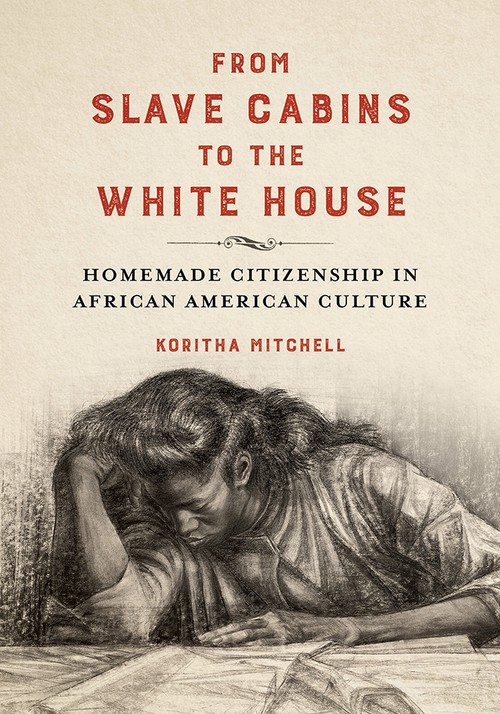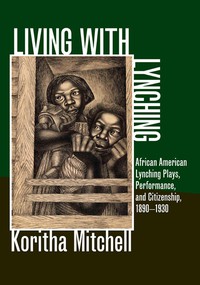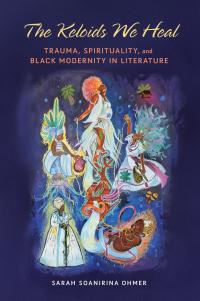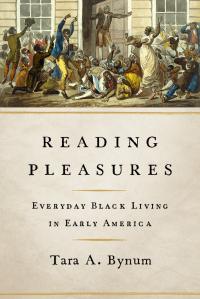
From Slave Cabins to the White House
Cloth: 08/31/2020
About the Book
Koritha Mitchell analyzes canonical texts by and about African American women to lay bare the hostility these women face as they invest in traditional domesticity. Instead of the respectability and safety granted white homemakers, black women endure pejorative labels, racist governmental policies, attacks on their citizenship, and aggression meant to keep them in "their place."Tracing how African Americans define and redefine success in a nation determined to deprive them of it, Mitchell plumbs the works of Frances Harper, Zora Neale Hurston, Lorraine Hansberry, Toni Morrison, Michelle Obama, and others. These artists honor black homes from slavery and post-emancipation through the Civil Rights era to "post-racial" America. Mitchell follows black families asserting their citizenship in domestic settings while the larger society and culture marginalize and attack them, not because they are deviants or failures but because they meet American standards.
Powerful and provocative, From Slave Cabins to the White House illuminates the links between African American women's homemaking and citizenship in history and across literature.
Koritha Mitchell explains know-your-place aggression
Watch the virtual book launch event featuring Koritha Mitchell in conversation with Brittney Cooper
Watch an interview with Koritha Mitchell on Left of Black
Reviews
"An essential, scholarly volume for academic and larger public library collections devoted to the literary traditions and history of African American women throughout U.S. history." --Library Journal"Mitchell sheds light on Black homemaking in the midst of anti-Blackness and oppression." --Ms.
"Mitchell puts forth a bold and compelling hypothesis that American white supremacy is a form of know your place aggression against Black humanity and Black success." --BookRiot
"[Mitchell] deftly demonstrates her thesis. Of special interest is Mitchell's depiction of Michelle Obama as a strong Black woman performing as "Mom-in-Chief" and the flagrant white aggression her success inspired. A powerful speaker and a brilliant scholar and writer, Mitchell has earned her prestige and success in academia and popular culture. Essential." --Choice
"Her drawing together of literary sources with modern politics is both effective and, particularly when considering Mitchell's choice of images of Barrack Obama within her introductory chapter, affective. Beginning the book with images of Obama in the form of a lunched dummy is powerful and sets the tone for the rest of the book." --H-Net Reviews
"[Mitchell's] work encourages a reading practice with a 'fierce orientation toward accomplishment' that helps shine light on people of color in history whose achievements have gone unrecognized or under appreciated." --Public Books
"Mitchell’s paradigm-shifting work is sharp and empowering. . . . Instead of reading Black voices through the customary lens of protest, which understands African Americans’ claims to their humanity, dignity, and citizenship as a reaction to white supremacy, Mitchell urges readers to trade a focus on resistance for the lens of achievement." --MELUS
"A welcome contribution to the study of African American literature and culture and an excellent example of serious scholarly research presented in urgent, compelling prose that makes its relevance clear to academics and general readers alike. . . . Mitchell writes from profound expertise in African American literature and Black studies, and from that specific place, writes to foment liberation for all oppressed people." --Legacy
"[T]he scope of the book is impressive. Six chapters cover nearly a dozen major literary works spanning from the mid-nineteenth to the late twentieth centuries, in multiple genres, and bookended with incisive commentary on Michelle Obama‘s role as a national symbol."--Journal of African American History
"Mitchell acutely notes that it is vital to analyze Black cultural production . . . through a lens of achievement and self-affirmation, as protest and resistance are not the only stories that black Americans produce. . . . This book is especially beneficial for scholars who seek a broad overview of the tactics Black Women use in writing about achievement, success, and celebrations of survival over a span of 150 years, though each chapter hones in on a decade in order to survey the ways these narratives change over time." --Iowa Journal of Cultural Studies
"I would recommend this book to anyone interested in getting an introduction to some of the most important texts in African American literature while receiving an argument that has some crucial implications for understanding our own moment in the history of white supremacy." --The American Historical Review
“Mitchell’s powerful and timely argument on Black success, particularly success exemplified in Black women’s writing and cultural production, resists a reactionary take on approaches to demonstrating various expressions of American achievement while acknowledging know-your-place-aggression and the ways in which it attempts to annihilate Black families and communities.” --African American Review
Blurbs
"Brilliant scholar and literary critic Koritha Mitchell shows us just how radical the act of successful homemaking was for Black women in the face of the violence it elicited from white people. Analyzing canonical Black women's texts, she shows us just how committed, loving, and defiant Black women have been in creating home in the world and in literature." --Michael Eric Dyson, New York Times bestselling author of What the Truth Sounds Like
"This deeply researched, thoughtful volume made me think in new ways about how Black women have navigated, redefined, and articulated concepts of home, domesticity, family, place and citizenship in American culture and politics; it is also a true pleasure to read."--Rebecca Traister, New York Times bestselling author of All the Single Ladies: Unmarried Women and the Rise of an Independent Nation and Good and Mad: The Revolutionary Power of Women's Anger
"This project on homemade citizenship will reframe the conversation around anti-blackness by mapping how black women intellectuals, activists and artists continually respond – and with great success – to attacks and infringements upon their collective creative efforts. This work is a needed subtlety, as it approaches categories like 'achievement' and 'success' from the fabric of black cultural production, rather than the font of white supremacy’s violent response to black existence. From Slave Cabins to the White House encourages us to ask new questions, one of which is certainly how did we/do we make a home and sustain it creatively in the midst of ongoing hostilities?"--Sharon Patricia Holland, author of The Erotic Life of Racism
"Mitchell is a cultural historian deeply committed not only to understanding the past on its own terms but also doing so in ways that activate her readers to understand our own experience in the context of our own place in history. . . . And throughout this book, Mitchell’s capacity to hold our present moment in mind as she also respects the historical contexts of her chosen texts and subjects is a marvel to watch — and a marvelous provocation to experience as a reader." --Brian Herrera, Princeton University, author of Latin Numbers: Playing Latino in Twentieth-Century U.S. Popular Performance
Awards
A Ms. Magazine Best Book of 2020A Black Perspectives Best Black History Book of 2020
• Choice Outstanding Academic Title, 2021
• Honoree, Progressive Women's Voices IMPACT Award, Women's Media Center, Women's Media Awards, 2023









